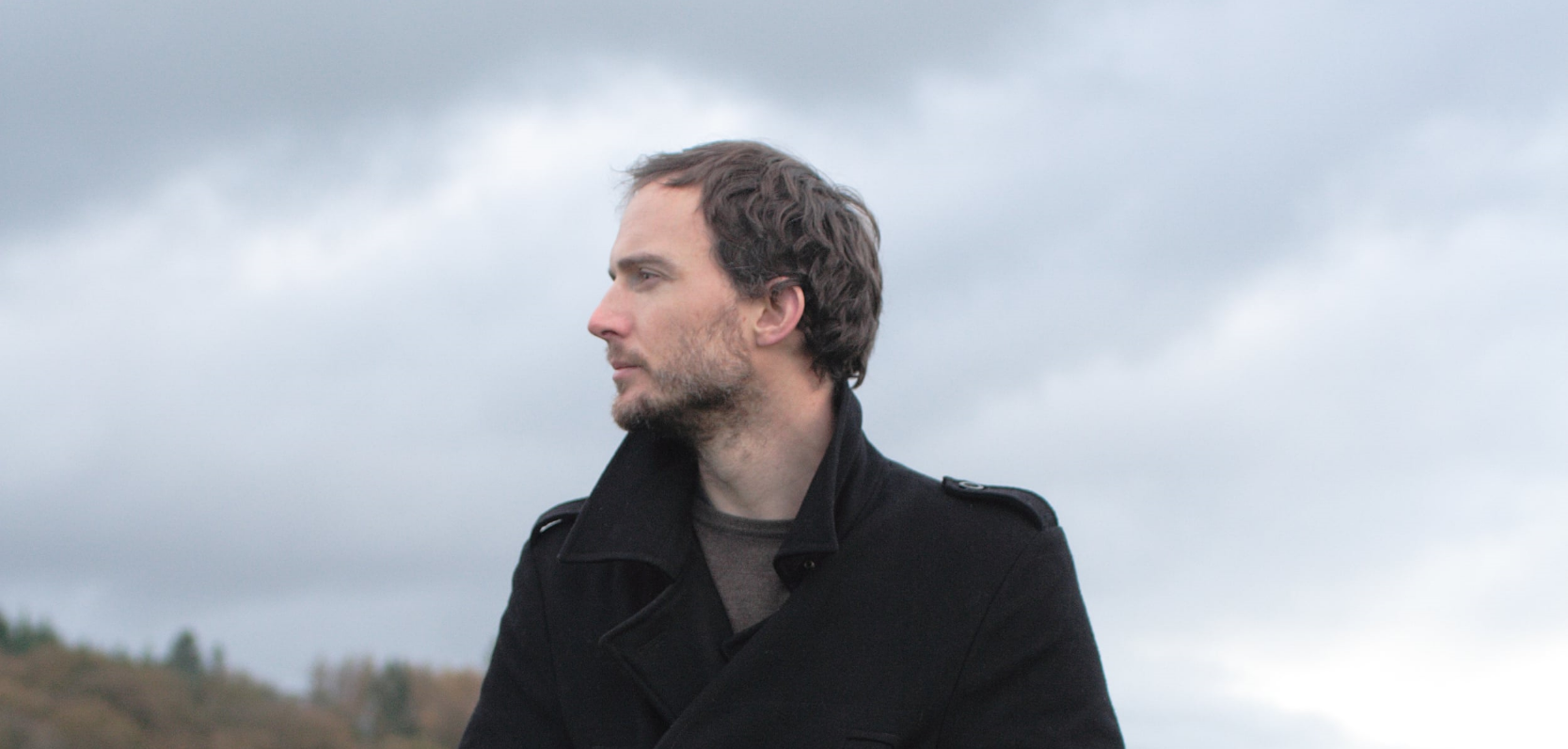"I walked myself into the landscape, and it into me." The UK artist Richard Skelton speaks to Luke Turner about music, landscape and creative ecosystems
Meet
Cottage Industries:
Richard Skelton
It's tempting to describe Richard Skelton's prolific output of music, text and film from a small farmhouse in Cumbria's Dunnerdale Fells in the UK as a cottage industry in a very literal sense. But perhaps it's more accurate to look at his practice as a creative ecosystem that includes the rough hillsides around him.
| CONTRIBUTORS |
| WORDS: LUKE TURNER PHOTOS: RICHARD SKELTON PORTRAIT: AUTUMN RICHARDSON |
Over the past five years, heavy storms have frequently required Skelton and partner and collaborator Autumn Richardson to break off from their writing, music or day-to-day admin for their Corbel Stone Press to divert flood waters from their front door. A stoat set up home in the roof above their bed.
““I walked myself into the landscape and it into me””
While many visit the English Lake District in search of a picture postcard idyll and the reflection of Wordsworth's daffodils in water, Skelton describes the Dunnerdale Fells as a "scree-strewn, moss-covered" environment frequently obscured by mist, rain and cloud, "a twilight landscape, half real, half imagined". Superficially, there's a marked contrast between the scraping drones of Skelton's music and the sparseness of his texts, frequently made up of nothing more than fragments of regional dialect or lists of words for land formations. Yet read and listen more closely, and it emerges that everything he creates stems from a visceral engagement with this local terrain.
Skelton's exploration of this ambivalent, even hostile place occurred in almost-daily perambulations of the area. "I walked myself into the landscape, and it into me," as he puts it. That this complex ecology is so effectively evoked and described in Skelton's work is testament to this immersion. It's also why there's such coherence to his writing, music and filmmaking – even Skelton's website acts as an aesthetic unifier of the various elements of his process. "Having lots of work on the go in lots of forms of art keeps me alive," he says of his cross-disciplinary model. "To me they’re different aspects of the same – like a prism refracting different colours of light. Music and writing in particular can emanate from the same source, although practically speaking, the process of writing in each medium is very different. It’s certainly true that a momentum achieved in one will infuse the other."
This open-ended approach is also seen in his romantic and artistic partnership with Richardson, an environmental activist whom he credits with giving him "a new awareness of the 'greater' landscape". Their collaborative album and collection of texts Wolf Notes, for instance, "explores and celebrates what exists, and draws attention to what has gone, what has been lost."
These themes of decay and change run through Skelton's latest work, the monograph Beyond The Fell Wall, published last autumn by Little Toller. By focusing on the old stone walls that mark the boundary between cultivable land and the wilder landscape beyond, Skelton expands on his fascination with our human interventions into the natural environment. Interestingly, it's a combination of words, sound and moving image that make the accompanying Beyond The Fell Wall film, as much as the book itself, Skelton's most coherently realised work to date.
Skelton's interest in filmmaking began in 2000, but was frustrated by what he describes as a lack of "vocabulary". Music and publishing took over and it's only recently that he felt he has "the raw material" for the moving image to become an equal part of his practice. Forced to work with the technological limitations of a small hand-held camera and tripod that make the landscape cliché of panning shots look "rubbish", Skelton instead focuses on hard, grayscale shots of stones, mist, rock, leaves and trunks. The footage is matched by a soundtrack of tough electronic drone. Skelton explains that this sonic development was inspired by the question of how the natural forces of weathering can be represented musically. "If I'm recording with violin or cello, can I get close to that?" he says. "I decided I couldn't, so I needed to even further subject those sounds to processes. I felt the electronic ones worked the best, because you can really pulverise sound." Finally, text from Beyond The Fell Wall is spoken over the top – as ever with Skelton's work, the results are heavy and meditative, yet never portentous.
Late last year, Skelton and Richardson upped sticks from their fellside cottage and moved to explore new territories in Fife, Scotland. Beyond The Fell Wall is not a farewell to the damp crags of Cumbria, however – he's planning a major work contrasting animal persecution in Cumbria with pre-Roman veneration of local fauna. "My work is about a surrender to the physical reality of the landscape, to its processes, and trying to come to terms with them," Skelton says. "Death is part of a cyclical process, everything falls to earth and is absorbed by the earth. There's a sense that because we fear our own mortality it is something dark, but actually increasingly I find it's something profoundly beautiful, a glorious process. Those are the things I ponder when I go about my daily life."
RICHARD
BORN: Lancashire, UK
OCCUPATION: Musician, Writer, Artist, Film Maker and more











